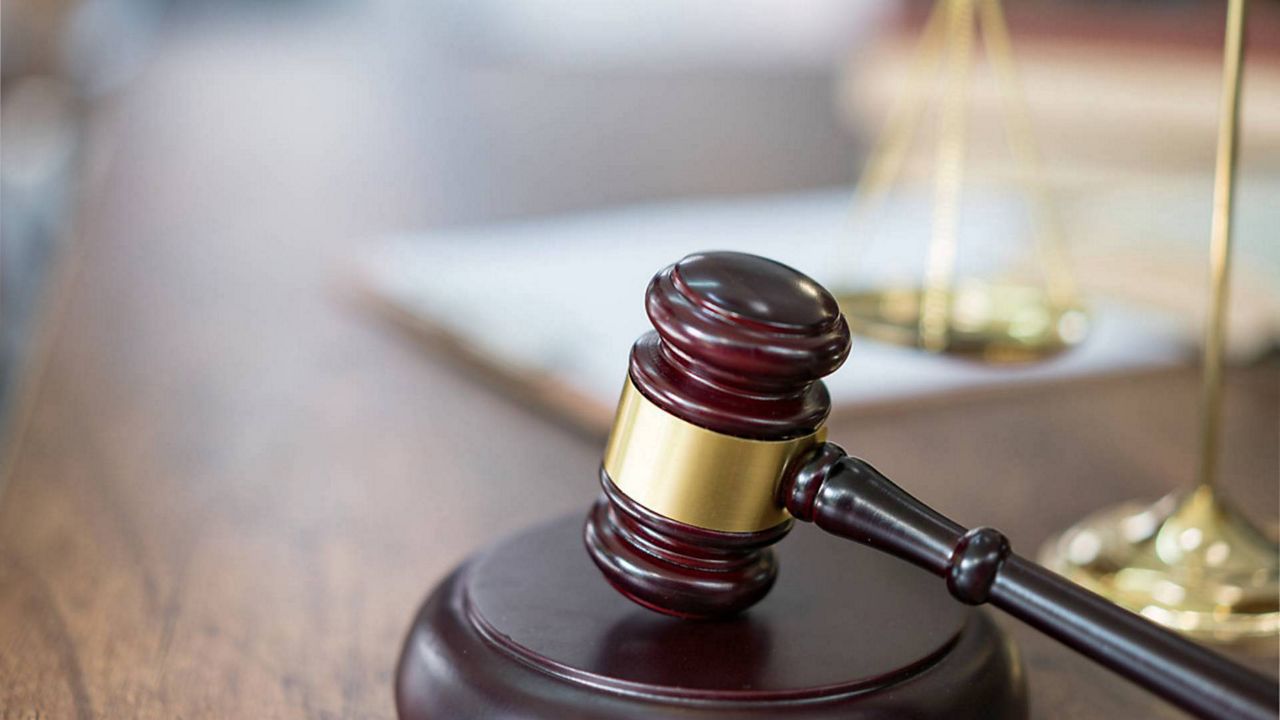The group that enforces New York's ethics laws is in limbo after a state Supreme Court judge ruled Monday the structure of its new ethics commission is unconstitutional and fails to strike a mandated balance of governmental control.
The decision, handed down by Republican Supreme Court Justice Thomas Marcelle, rules the Legislature improperly created the state Commission on Ethics and Lobbying in Government without a constitutional amendment, and that the process to appoint its 11 members lacks proper government oversight.
"...The court concludes that the commission’s enforcement of the ethics laws through civil penalties and forfeiture is the exercise of executive power belonging to the executive branch," wrote Marcelle, who was elected to the state Supreme Court last November. "
The decision is a win for former Gov. Andrew Cuomo, who resigned from office in August 2021 after a state attorney general report alleged he engaged in sexual harassment and misconduct with multiple women. He denies wrongdoing.
Lawmakers passed legislation to create a new ethics watchdog and replace the Joint Commission on Public Ethics last year, challenging its questionable enforcement and independence from the executive chamber. Cuomo established JCOPE in 2011 about six months after taking office.
Cuomo first challenged the constitutionality of the new ethics commission earlier this year after the group moved to investigate the ex-governor's use of public resources to write his book "American Crisis: Leadership Lessons from the COVID-19 Pandemic." JCOPE initially approved the $5.1 million book deal, but unsuccessfully attempted to claw back the profits.
"As we've said all along, this was nothing more than an attack by those who abused their government positions unethically and — as the judge ruled today — unconstitutionally for political purposes," Cuomo's spokesman Rich Azzopardi said in a statement. "Those in Albany who created this farce of a commission may not are about — or know — the law, but whether it was five district attorneys rejecting the Attorney General's sham report's findings or the courts, every time someone charged with upholding the law looks at the facts, we prevail. Truth and reason won, mob rule lost today."
The 11-member Commission on Ethics and Lobbying in Government includes appointments to a board by the governor, legislative leaders, state comptroller and state attorney general.
Gov. Hochul's office will work with the state attorney general's office to appeal the decision.
"Taking office in the midst of scandal and a crisis in state government, Gov. Hochul worked with the Legislature to craft a new, truly independent ethics body that could begin to restore New Yorkers' faith in their public officials," Hochul's Press Secretary Avi Small said in a statement. "Today's decision undermines the independent ethics commission created by Gov. Hochul and we will work with the Commission to support an appeal."
An automatic stay, or an order to let the current structure remain in place, would take effect if the state government appeals the decision to a higher court. The case is expected to reach the state Court of Appeals.
Officials with the state Commission on Ethics and Lobbying in Government said they disagree with the ruling in a statement Monday and will review all options, including interim legislation, if appropriate.
"New Yorkers have the right to an ethics commission that is truly independent and fully empowered to administer and enforce the state’s ethics and lobbying laws objectively, even-handedly, and without regard to the rank, position or political affiliation of those we regulate and without interference from any branch of government," COELIG chair Frederick Davie and Executive Director Sanford Berland said in a statement. "The commission intends to move forward, deliberately and with zeal, to fulfill its mission to restore New Yorkers’ faith in government, even as it pursues relief from today’s ruling through the appellate and legislative processes.
"Let me be clear, the state ethics and lobbying laws [Public Officers Law §§ 73, 73-a, and 74, Civil Service Law § 107, and Legislative Law Article 1-A] remain intact," Davie and Berland continued. "While this matter works its way through the courts, the commission will continue to promote compliance with the state’s ethics and lobbying laws."



